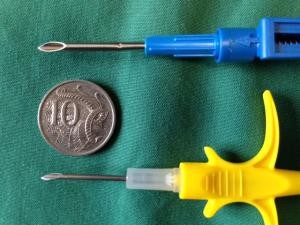Choosing A Dog Breed
There are so many breeds of dog that it’s really true that there’s a breed for everyone. You can read our quick summaries of 130 breeds here,
If you are considering getting a new dog, please visit our Guide to choosing and caring for a new puppy. It covers finding the ideal breed, best family pets and getting the house ready for a puppy.
Nutrition and Dental Care
Feeding dogs can be as easy or complex as you want it to be. See our full articles on what and how to feed at How to feed your puppy or dog and Keeping dogs teeth clean. Please ask us for a recommendation based on your pet’s requirements.
Other pages you might like include:
- Help! My puppy is being fussy
- How to get puppies to eat kibble & why it matters
- Guide to better chew toys
- Healthy dog treats
- Raw diet advice
Vaccination
Puppies are vaccinated with ‘C5’ vaccines including parvovirus, distemper, hepatitis, bordetella and parainfluenza protection. For information on the diseases, visit What do vaccines actually do?
It is now possible to give puppies their puppy immunisation at 10 weeks of age. This allows them to socialise and exercise from 11 weeks of age. For information on our early puppy vaccination visit Puppy Vaccination.
Adult dogs now receive their vaccinations using a vaccine with allows protection against parvovirus, distemper and hepatitis (C3) for three years. This allows us to give them yearly vaccinations for canine cough only and a 3-yearly C5 to maintain a full C5-standard of immunity.
Heartworm Prevention
Heartworm is a serious cause of illness in dogs in Adelaide. Read all about heartworm here (warning- there are some nasty pictures!).
Prevention of heartworm infection is important but at first glance there seems to be a bewildering array of choices. See our page at on choosing the right product at Heartworm, Flea and Intestinal Worm Protection for Dogs.
Puppies should commence heartworm prevention at 3 months of age, but older dogs may require a blood test if their prevention has not been continuous since a puppy.
Intestinal Worming
Dogs need regular preventative treatment to prevent intestinal worms. Puppies are most at risk, and will often develop problems if worming is not performed. Worms are spread from their mother during suckling and by eggs from the environment.
Puppies should be wormed every 2 weeks up to 12 weeks of age, every 3 months up to 6 months of age, then every 3 months for life. You can read all about the 4 types of worms of dogs here.
How Do You Know If Your Dog Has Worms?
The most common sign of a worm infestation in a puppy is a poor appetite together with a swollen belly. In older dogs, symptoms are more vague and can just be poor health, weight loss or diarrhoea.
To diagnose worm problems, we send faeces away for testing. However, if you follow normal preventative schedules, it is very unlikely that your dog will ever have enough worms to cause illness. Read here about the true causes of dogs rubbing their bottom (hint- it’s not worms!)
Flea & Skin Care
The adult flea is an environmental pest which infests most areas where animals are found. It jumps onto passing animals and then feeds on the host’s blood, laying eggs which fall off during the dog or cat’s travels. All animals are exposed to fleas.
Preventing skin problems can be as simple as knowing how to bath a dog properly and using good flea control. If that’s not enough, we’re here to help.
Desexing
Desexing has always been highly recommended for both female and male dogs but became compulsory in SA from 2018. Some of the reasons behind the decision can be found at our blog on the pros and cons of desexing your dog.
The decision on when and how to desex is a lot more complicated than is used to be. Six months of age is still best for small breeds, but later dates are now being advised for larger breeds. Read the full story on the best age to desex here and a comparison of the different desexing procedures.
View desexing prices here. Before you book in your dog for desexing, read our guides to What to do before a dog is desexed and How to look after dogs after surgery.
Anaesthesia and Surgery
We have a specialised operating theatre which we use on a daily basis for surgical procedures. Our trained staff and the range of equipment at our disposal makes us able to perform most surgical procedures, including fracture repair or abdominal surgery.
Please ask us to show you our facilities before you book in your pet and read our Guide to Anaesthetic Safety in Dogs.
Microchips

All dogs should have a microchip implanted at some stage early in their life. The widespread use of microchips in our area has made dog pounds and unclaimed dogs almost a thing of the past. Microchipping can be performed in most dogs without an anaesthetic but is often done at the same time as desexing. View costs here.
Read our full article on microchips here
Behaviour and Management
It’s hard, but it’s worth the effort! We have many resources to help you raise the perfect puppy and troubleshoot along the way.

